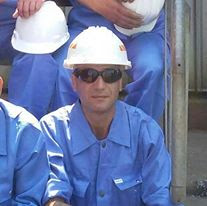COMBUSTION PHYSICS CHUNG K. LAW
In the past several decades, combustion has evolved from a scientific discipline that was largely empirical to one that is quantitative and predictive. These advances are characterized by the canonical formulation of the theoretical foundation; the strong interplay between theory, experiment, and computation; and the unified description of the roles of fluid mechanics and chemical kinetics. This graduate-level text incorporates these advances in a comprehensive treatment of the fundamental principles of combustion physics. The presentation emphasizes analytical proficiency and physical insight, with the former achieved through complete, though abbreviated, derivations at different levels of rigor, and the latter through physical interpretations of analytical solutions, experimental observations, and computational simulations. Exercises are designed to strengthen the student’s mastery of the theory. Implications of the fundamental knowledge on practical phenomena are discussed whenever appropriate. These distinguishing features provide a solid foundation for an academic program in combustion science and engineering.
Chung K.Lawis the Robert H. Goddard Professor of Mechanical and Aerospace Engineering at Princeton University. He obtained his doctorate in engineering physics from the University of California at San Diego in 1973. His research interests are in combustion, propulsion, heat and mass transfer, and issues on energy and the environment. For his research accomplishments, he received the Curtis W. McGraw Research Award of the American Society for Engineering Education (ASEE) in 1984 for outstanding early achievement in research, a silver medal of the Combustion Institute in 1990, the Propellants and Combustion Award of the American Institute of Aeronautics and Astronautics (AIAA) in 1994, the Heat Transfer Memorial Award, in science, of the American Society of Mechanical Engineers (ASME) in 1997, the Energy Systems Award and the Pendray Literature Award of the AIAA in 1999 and 2004, respectively, and several awards for best conference papers. He is an original member of the Highly Cited Researchers database of the Institute for Scientific Information (ISI). Professor Law is a former president of the Combustion Institute, a Fellow of the AIAA and the ASME, and a member of the U.S. National Academy of Engineering.



thanks for your visit